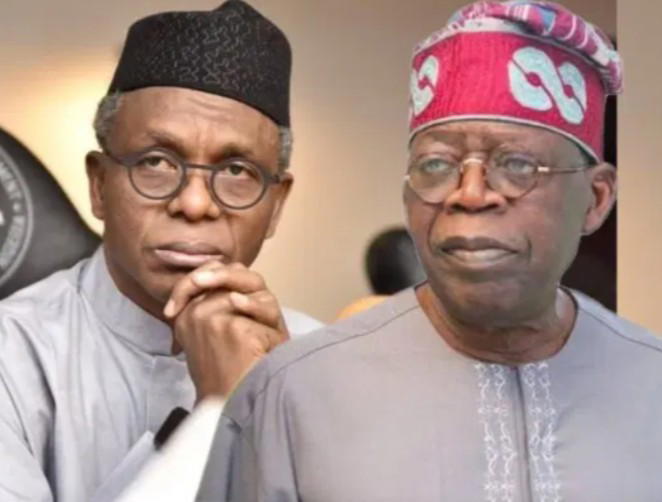
Impeachments in Nigeria’s political history: Constitutional authority and political realism(3), by Afe Babalola,
Kola Oluwawole – Ekiti State (October 2018)
In October 2018, Kola Oluwawole, then Speaker of the Ekiti State House of Assembly, was abruptly impeached. The reasons for his removal were not clearly articulated in public discourse, a situation that underscores a recurrent theme in Nigerian state politics—lack of transparency. Seventeen members out of the 26-member assembly reportedly supported the impeachment, which coincided with a political transition from the administration of Governor Ayo Fayose to that of Governor Kayode Fayemi. The context suggested that the impeachment might have been part of a broader political realignment, typical of post-election purges. While procedurally valid under the assembly rules, the lack of clarity on the allegations weakened the transparency expected in democratic governance.
Gboyega Aribisogan – Ekiti State (2022)
Gboyega Aribisogan’s tenure as Speaker of the Ekiti State House of Assembly was one of the shortest in recent memory. Elected following the death of the former Speaker, Funminiyi Afuye, Aribisogan was removed barely a week later in November 2022. Seventeen out of 25 lawmakers voted to impeach him, citing anti-party activities and alleged manipulation of the electoral process that brought him into the office. However, political observers interpreted the move as a fallout of internal divisions within the ruling All Progressives Congress (APC) in Ekiti. His impeachment highlighted how internal party politics often overshadows legislative independence, challenging the autonomy of the state legislature.
Abok Ayuba – Plateau State (October 2021)
Abok Ayuba, then the youthful Speaker of the Plateau State House of Assembly, was ousted in October 2021. His removal followed an extended period of friction with the state’s executive arm, particularly Governor Simon Lalong. Ayuba was accused of misconduct and alleged misalignment with the policies of the executive. The impeachment was executed in a controversial early-morning session by a minority of eight members out of 24, raising serious constitutional concerns. Despite court orders reinstating him, the resistance to his return emphasized the structural weakness of legislative compliance in the face of political intimidation. The saga exposed the fragility of legislative authority when pitted against entrenched executive interests.
Adamu Usman – Niger State (May 2015)
In May 2015, Adamu Usman, the Speaker of the Niger State House of Assembly, was impeached by 18 of the 27 lawmakers. Though the specific allegations were not widely circulated, it was understood that dissatisfaction with his leadership style and legislative management were central to his removal. The timing—just after the 2015 general elections—suggested a shift in political alliances and preparations for a new state administration. His impeachment reinforced the pattern of political house-cleaning that often accompanies regime changes in Nigerian politics, raising questions about the stability of legislative leadership and continuity.
Victor Edoro – Edo State (2016)
Victor Edoro was impeached in 2016 as the Speaker of the Edo State House of Assembly on allegations of financial recklessness and authoritarian leadership. Seventeen out of 24 lawmakers signed the impeachment notice. His removal was significant in that it marked a major shift in the balance of power within the Assembly and reflected a push for internal reform. However, the political context suggested that it was not entirely altruistic, with power blocs within the ruling party seeking more pliable leadership. His impeachment served as a lesson on the dual-edged nature of legislative accountability—where legitimate grievances may be overshadowed by factional dominance.
Chinedum Orji – Abia State (May 2023)
The impeachment of Chinedum Orji, son of former governor Theodore Orji, in May 2023, was one of the more politically symbolic removals in recent times. Eighteen of the 24 members signed the impeachment notice. Orji had been a dominant political figure in the state assembly, and his ousting signaled a significant political shift. Critics accused him of running the House with excessive personal influence, while supporters saw his removal as a power grab by new political forces. The event illustrated the changing tides in Abia politics, where generational and partisan shifts are redefining traditional power structures.
Olakunle Oluomo – Ogun State (January 2024)
In January 2024, Olakunle Oluomo was impeached as Speaker of the Ogun State House of Assembly. The impeachment was backed by 18 out of 26 lawmakers, who cited allegations of financial misappropriation and gross misconduct. His removal followed months of internal strife within the assembly and allegations of opaque financial dealings. While the process followed legislative procedures and met constitutional thresholds, it also revealed deep fractures within the political establishment in Ogun. Unlike some other impeachments, Oluomo’s was not reversed, suggesting a consensus among lawmakers on the need for new leadership.
Mudashiru Obasa – Lagos State (January 2025)
Mudashiru Obasa’s impeachment in January 2025 came as a shock to many, given his long-standing dominance as Speaker of the Lagos State House of Assembly. Accused of high-handedness and financial misconduct, Obasa’s removal was the result of growing dissent within the Assembly, where legislators were reportedly disillusioned with his style of leadership. However, in a dramatic twist, he was later reinstated following intervention from influential political stakeholders and a judicial review that questioned the propriety of the impeachment process. His reinstatement signaled both the complexity and the limits of legislative power in Nigeria’s most politically sophisticated state. It also raised crucial questions about the balance between due process and political expediency.
Conclusion:
The Constitutional Compass
These impeachment episodes offer more than political drama—they are reflections of Nigeria’s ongoing struggle to consolidate democratic norms. In many cases, the judiciary has served as a guardian of constitutional order, reversing illegal or politically motivated impeachments. However, other cases show gaps in transparency, due process, and legislative independence.
As Nigeria advances, these precedents highlight the need for continuous institutional strengthening, civic vigilance, and unwavering commitment to the rule of law. Impeachment should remain a tool of accountability—not a weapon of political vendetta.
•Please send your comments to president@abuad.edu.ng
The post Impeachments in Nigeria’s political history: Constitutional authority and political realism(3), by Afe Babalola appeared first on Vanguard News.
,
Kola Oluwawole – Ekiti State (October 2018) In October 2018, Kola Oluwawole, then Speaker of the Ekiti State House of Assembly, was abruptly impeached. The reasons for his removal were not clearly articulated in public discourse, a situation that underscores a recurrent theme in Nigerian state politics—lack of transparency. Seventeen members out of the 26-member assembly […]
The post Impeachments in Nigeria’s political history: Constitutional authority and political realism(3), by Afe Babalola appeared first on Vanguard News.
, , Emmanuel Okogba, {authorlink},, , Vanguard News, June 25, 2025, 1:56 am











